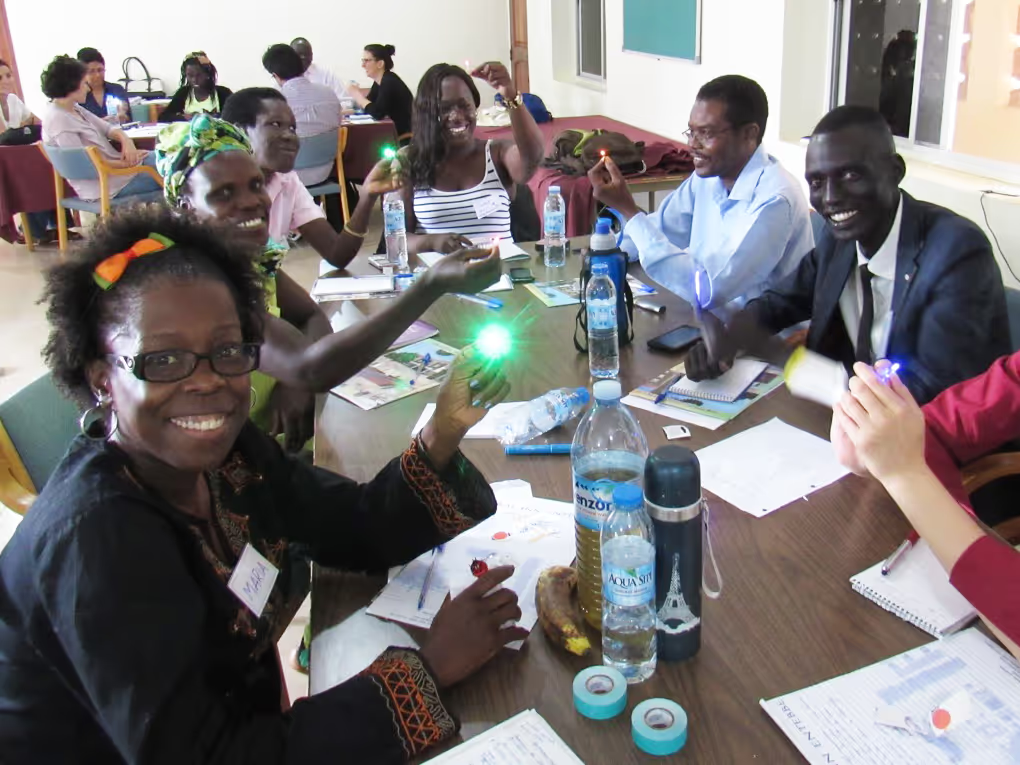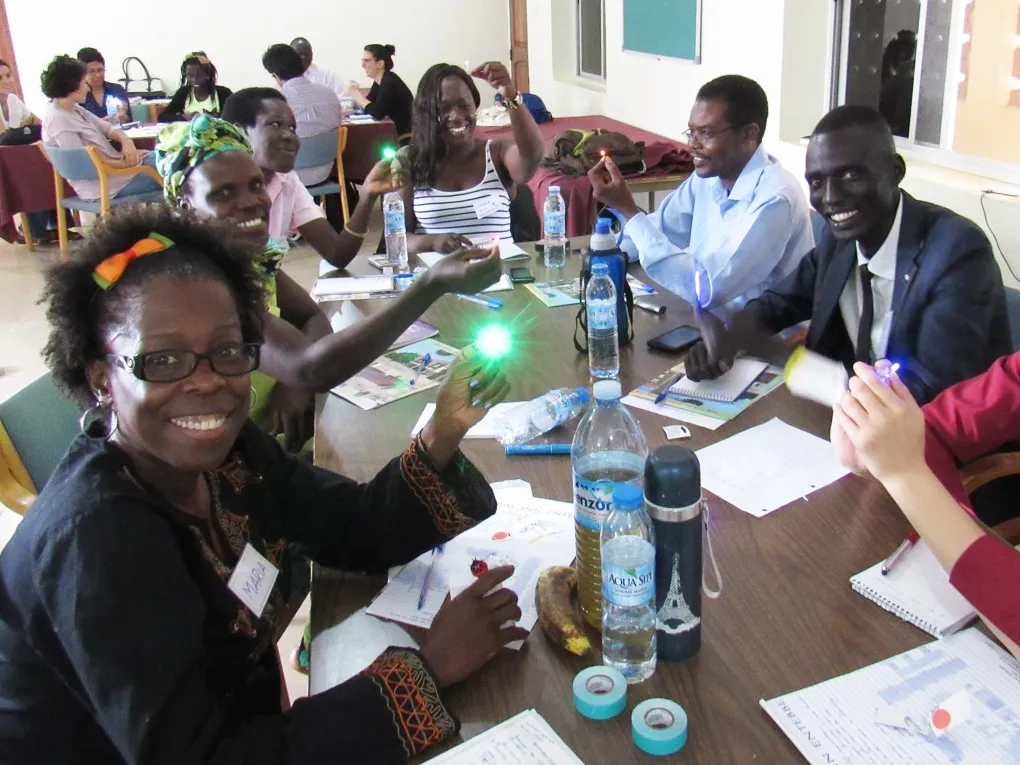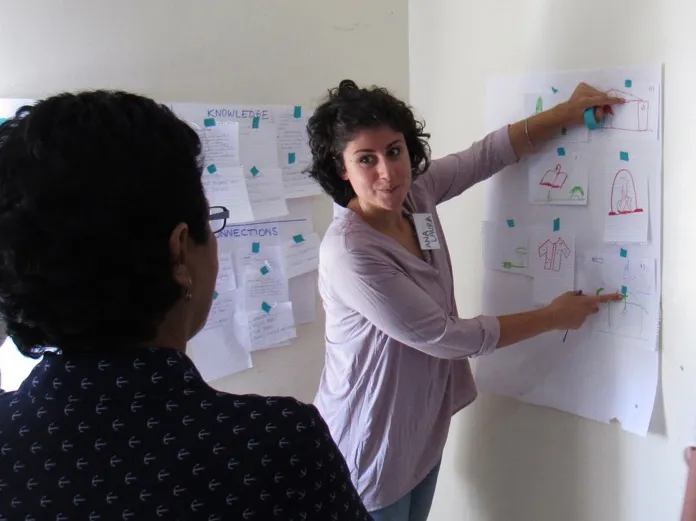Using Design and co-creation to address Gender based violence

One of the fundamental principles of Rethink Relief is that innovation thrives when you bring together people from different disciplines and backgrounds, so we put this principle into action as we began our HIF-supported project: Addressing GBV through refugee-led innovation.
We brought together twenty-two people for the three-day kick-off meeting in Entebbe, Uganda. We invited people from different backgrounds, different disciplines, different organizations, different economic and educational levels, different sectors and different countries people that usually don’t work together: GBV experts, designers, ICT experts, teachers, students and refugees. At the beginning, it felt like we were speaking different languages but as time went on, and we went through a variety of hands-on exercises and co-creation activities, the group started to gel, we got on the same wave length and the ideas started to flow.

Our main goals were:
1) to hear from a variety of voices to discuss the role that design, innovation and technology could have in addressing GBV, and to inform our work to develop and pilot a design curriculum to engage refugees in creating solutions to GBV issues
2) to share our philosophical approach to humanitarian innovation and share our experiences with co-creation and creative capacity building
3) have designers, refugees and GBV workers share their experiences and learn from each other. Since co-creation is at the core of our approach, we could not imagine developing this pilot program and curriculum without first getting a variety of stakeholders and experts in the same room and make sure everyone’s voice was heard.
We had a chance to hear from different experts about their work in the field and their techniques to address gender-based violence in different parts of the world: Carolina from Oxfam America introduced us to the challenges of urban-dwelling gender-based violence in El Salvador, Annet talked about findings from the monitoring of her work in South Sudan with IRC, Marina from UNHCR in Geneva talked about their SGBV prevention measures while Jal and Gift from Rhino Camp in Uganda shared insights through their perspective on youth outreach and GBV programs. Amen, Sally and Stephen all shared their experiences in facilitating Creative Capacity Building workshops and showcased many innovations that were designed and build by local technology groups.

Along with these presentations, practical design skills were introduced to the participants and co-creation and capacity building techniques were demonstrated along with an ICT skill-building session that showed us that each of us could create a mobile app from scratch in just a few hours. Once the stage was set for co-creation, we divided the participants into three working groups to focus on the main aspects of the project:
• Program and partnerships: to develop a plan for piloting this project on the ground, which includes identifying field sites, formulating a strategy for using the curriculum to train refugees, establishing and equipping physical maker spaces, and developing partnerships with NGOs to provide the long-term follow-up necessary for the successful implementation of the products of the design training to address gender-based violence
• Curriculum: to develop a GBV-focused curriculum that engages refugees in the design process and can be adapted for use in multiple contexts.
• Monitoring and evaluation: to create a novel monitoring and evaluation framework that builds on the principles of participatory evaluation and Lean Research.
At the end of the three days, we felt we could say the meeting was a success, not only because the participants had a great time working together but also because they mentioned they learned a lot and gained new perspectives that they will integrate into their ongoing work. A core group from each of working group got together to consolidate the good thinking during those few days, into a framework for developing the deliverables for the project.
We are happy with the material developed in such a short time period, but even more importantly, we are excited by the strong core team that has emerged to move the project forward, and the enthusiasm from all partners to continue our work together on this very important topic.
Stay updated
Sign up for our newsletter to receive regular updates on resources, news, and insights like this. Don’t miss out on important information that can help you stay informed and engaged.
Related articles


.png)
Explore Elrha
Learn more about our mission, the organisations we support, and the resources we provide to drive research and innovation in humanitarian response.